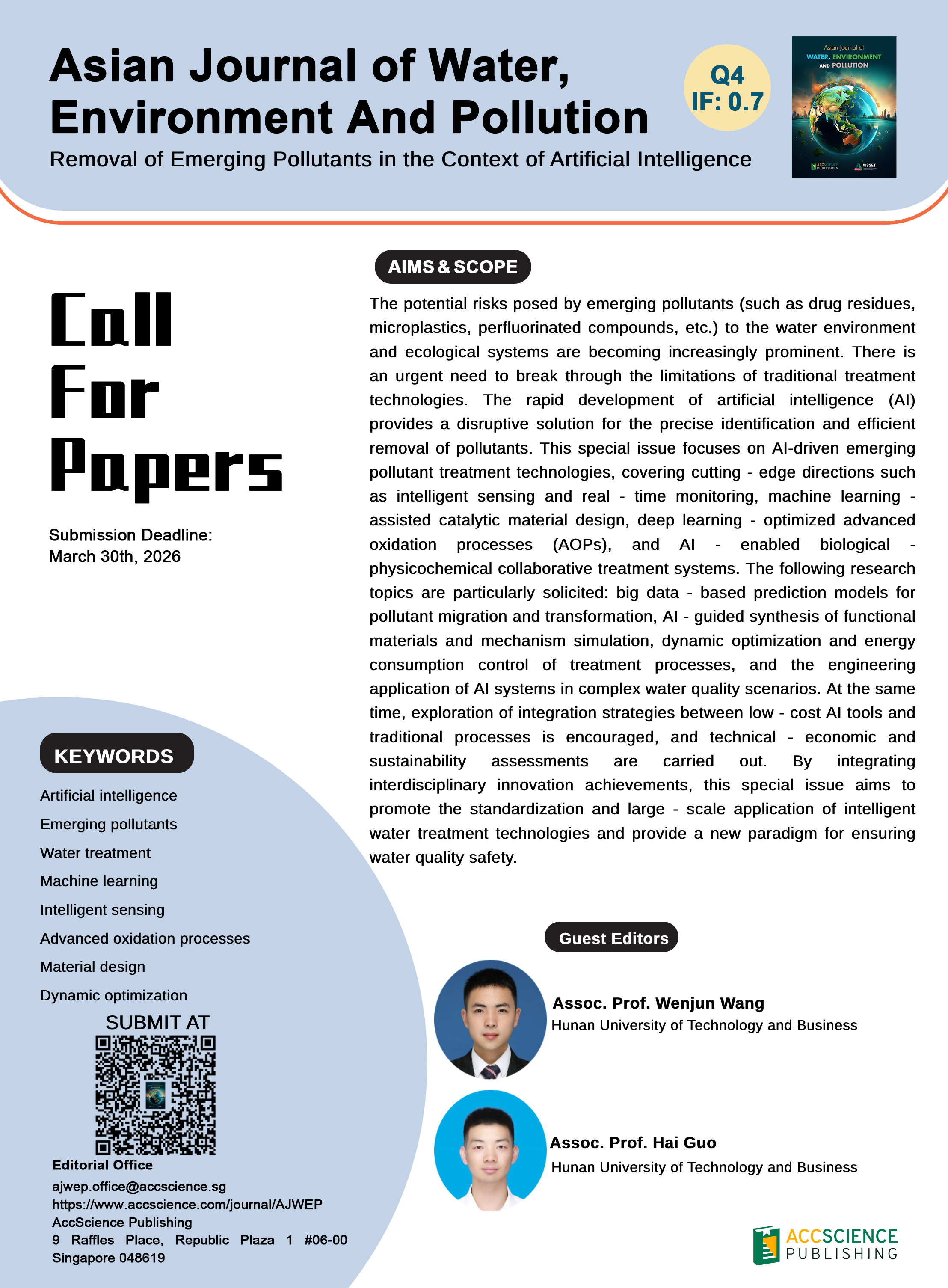
The potential risks posed by emerging pollutants (such as drug residues, microplastics, perfluorinated compounds, etc.) to the water environment and ecological systems are becoming increasingly prominent. There is an urgent need to break through the limitations of traditional treatment technologies. The rapid development of artificial intelligence (AI) provides a disruptive solution for the precise identification and efficient removal of pollutants. This special issue focuses on AI-driven emerging pollutant treatment technologies, covering cutting - edge directions such as intelligent sensing and real - time monitoring, machine learning - assisted catalytic material design, deep learning - optimized advanced oxidation processes (AOPs), and AI - enabled biological - physicochemical collaborative treatment systems. The following research topics are particularly solicited: big data - based prediction models for pollutant migration and transformation, AI - guided synthesis of functional materials and mechanism simulation, dynamic optimization and energy consumption control of treatment processes, and the engineering application of AI systems in complex water quality scenarios. At the same time, exploration of integration strategies between low - cost AI tools and traditional processes is encouraged, and technical - economic and sustainability assessments are carried out. By integrating interdisciplinary innovation achievements, this special issue aims to promote the standardization and large - scale application of intelligent water treatment technologies and provide a new paradigm for ensuring water quality safety.



